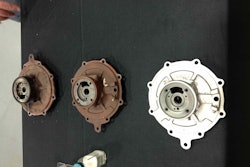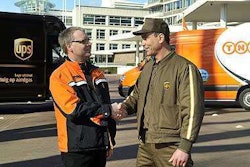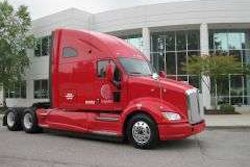Once a year, usually at the height of summer, my sister and I were loaded up into our ’72 Olds Vista Cruiser and spirited off to spend a long week with my grandmother in Mississippi. The nearest town of any size, Belzoni, was a good 15 miles away from the little cotton farm down in the Delta where my grandmother lived most of her life. The Sunflower River was about two miles to the west – and it usually flooded once a year. So the house was surrounded by levees that could quickly seal off the flood waters once they started to rise.
There wasn’t a lot to do on the farm. There were three TV stations – four if the PBS channel from Greenwood was coming in. But unless you were a Porter Wagner fan or liked soap operas, there wasn’t much point in turning the TV on anyway. Once, my cousin Paul and I found a six-pack of Miller Lite under the bathroom sink – which seemed like an odd place to store beer. But Mamaw was a tee-toataler. So which just figured someone who did drink had hidden it there. We spirited our prize out to the deep freeze in the pump house, got it a little cold and split it. We got busted right away: Turns out Mamaw washed her hair with beer. Who knew?
Another time we went swimming in the catfish ponds across the road from the house. Momma, Mamaw and the assorted aunts at the house weren’t too happy about that, either.
Like I said, there wasn’t much to do there.
I killed most of those long Mississippi afternoons off sitting on the levee with an old Marlin .22 bolt action rifle, killing anything that stuck it’s head up out of the murky swamp water. I killed 13 water moccasins one afternoon – my personal record. Then I completely cleaned out the bullfrog population around the house. And I got in trouble for that, too. My Uncle Earl, who was off on the riverboats, liked to gig them and fry their legs up for dinner and he had to drive all the way over to Gooden Lake to find any frogs when he got home because I’ll killed all the ones around the hosue.
The woods behind the farm had always been off-limits to all us grandkids. They were full of snakes, we were warned. But one day, bored with the lack of action on the levee, I took the rifle and wandered off into tree line behind the barn to see what was there.
Sure enough, I killed a timber rattler right off the bat. But other than that the woods were empty. The ground was cracked open from the drought, and the air smelled like a mix of wild dill and sage. I pushed through some brittle old palmetto bushes still clinging to life and wandered through the forest looking for anything of interest.
I was just about to give up and head back to the house and get out of the heat when a familiar, curved line caught my eye in the gloom. It looked like a fender.
I eased ahead through brush and suddenly found myself in the middle of an old junk yard – or maybe “graveyard” is a better term. It was all my grandfather’s old trucks – decades worth of them, utterly and completely worn out and stripped of parts. He was a tough old guy, my grandfather: You had to be to raise 7 kids on a sharecropper’s wages in Depression-era Mississippi. He watched his bank account like a hawk. He saved. And he saved. And when he did finally spend his money on something big – like a truck – he ran it until he’d wrung every last usable mile and bit of service out of it. And once they were done, he’d strip them for parts to keep other, newer, vehicles on the road. Then he’d hook them up to his red Farmall tractor and tow them out into this patch of woods I’d stumbled upon to let them slowly dissolve back into the gumbo clay that he made his living from.
It was a automotive lover’s dream: There was only one car: An old Pontiac station wagon that nobody could ever remember him driving – much less owning. But everything was mostly pre-war ½ and on 1-ton pickups with once-bold, but now faded chrome grills, goggle-eyed headlamps and big, fat curved fenders swooping over rusted rims and ruined tires. And mostly Fords, too. Which surprised me – because I’d always associated Papaw with Chevys. Most of them were in pretty shape, body-wise. Not a one of them had an engine or a transmission. A couple of them might have even been salvageable, had somebody gotten to them in time.
I spent the better part of an hour poking through those old wrecks. I even climbed in the cab of one of them (checking carefully for snakes under the seat first, of course). I spun the dead steering wheel, noted the sparse gauges in the dash and wondered what the truck had looked like new on the car dealer’s lot and where it had been during its life.
Papaw died in ’69, when I was three. So I only have scattered memories of him. But that day, I got spend a little time a spot he’d picked out himself, surrounded by the trucks he’d used to make his living, feed his kids and get a little bit ahead in the world.
The trucks are gone, now. The woods, too, for that matter. They sold the farm years ago to a catfish consortium. And most of the old farm is under water now. Which is a shame. I’d like to have seen at least one of my grandfather’s old trucks returned to the road. Maybe I’ll have better luck finding his old Farmall tractor – which I’m told still runs and it still somewhere around Belzoni, Mississippi. Time will tell, I guess.











